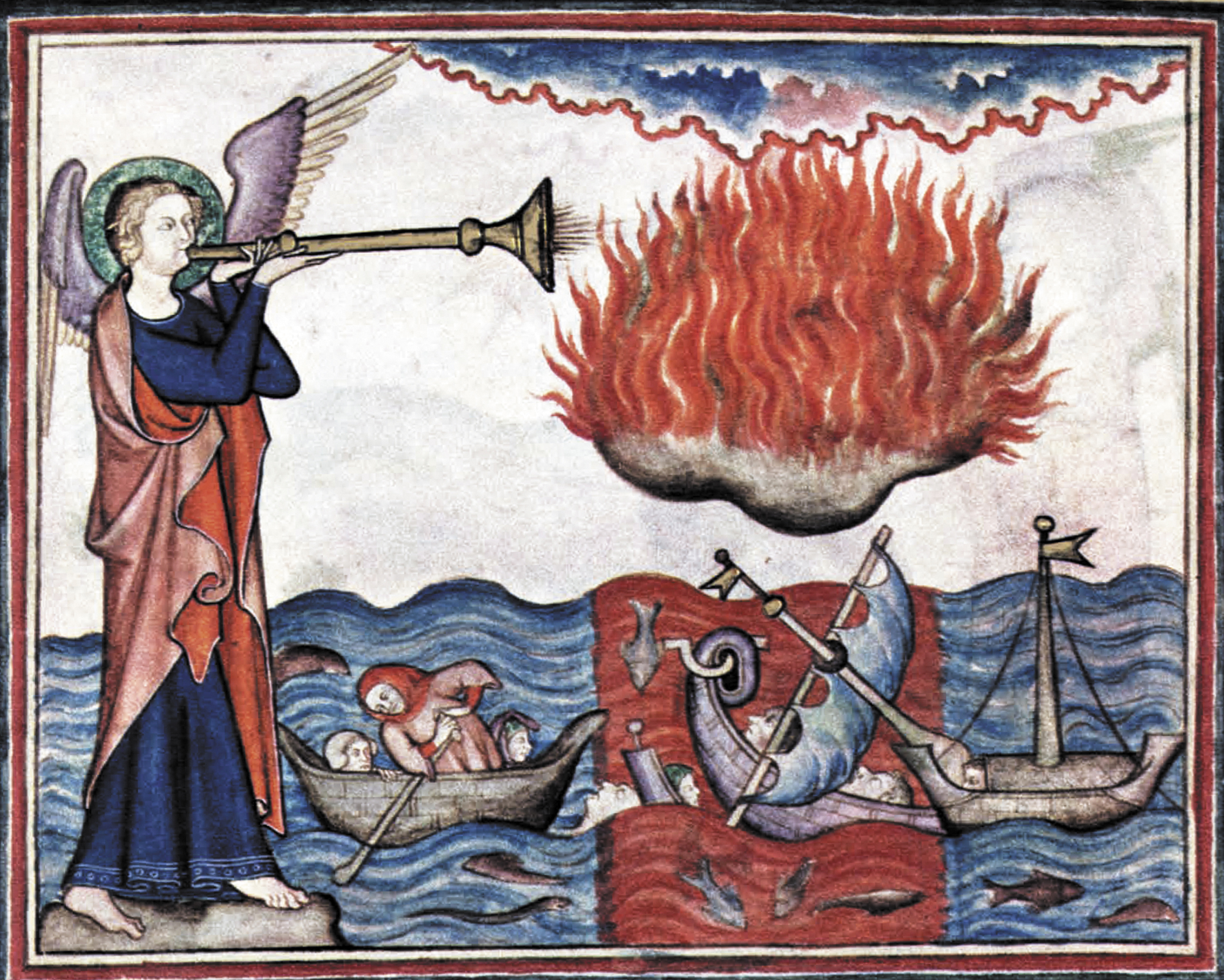
When the Trumpet Sounds
By Joshua Viola
Published Issue 084, December 2020
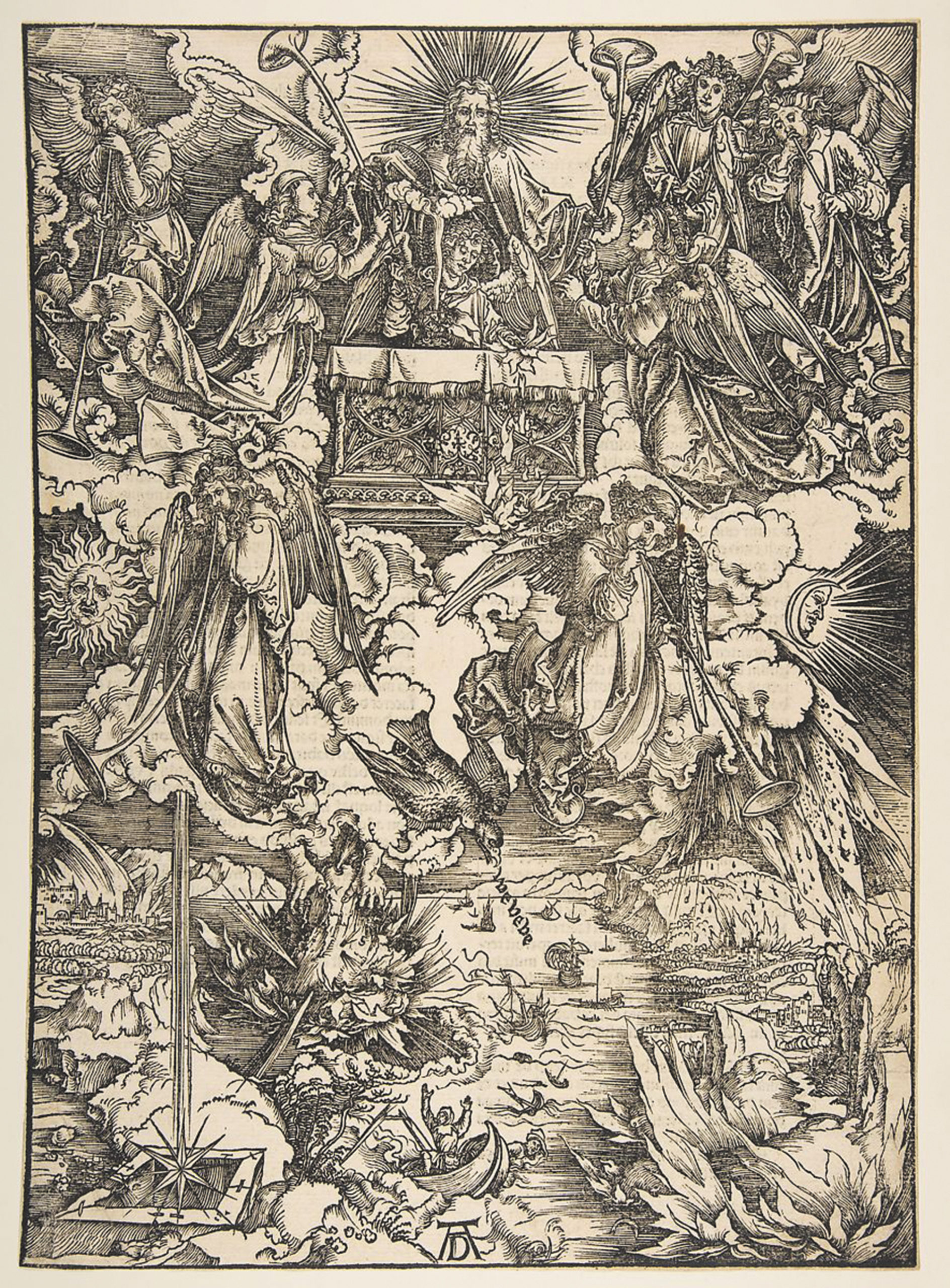
The Counting House
The King was in his Counting House.
Reverend Jimmy Joe King never said those words aloud, but he thought them every week, here in the room no one but Jimmy Joe himself was allowed to visit. He spent one perfect hour here every week. The room was a sanctuary built for one, unlike the sanctuary for 36,000 he filled twice every Sunday. Those filled pews — and the couches filled with thousands more who watched Jimmy Joe on TV — paid for the single seat the Counting House held.
And paid for everything else, he thought as he tapped his computer to life and brought up the week’s receipts. Everything.
The houses, the cars, the planes, the boat on the lake, and the yacht docked in Florida. The walk-in closets filled with designer suits and dress shoes. The barbers and masseurs who came three times a week. The walk-in pantries, refrigerators and freezers whose shelves overflowed with the finest foods, the rarest delicacies, the most exotic morsels. The private trainers who made sure those morsels didn’t add to his waistline. The mistresses on every continent — and in eleven states — whose strenuous devotion to keeping Jimmy Joe King pleased took care of whatever calories escaped the trainers. The investment portfolios and stockpiles of gold, silver, and whatever precious metals promised good return. The Bitcoins!
Everything. And more every week.
Jimmy Joe scanned the tally columns. Over $18 million in new pledges since Monday, and after this morning’s sermon, he had no doubt the coming week’s receipts would surpass that figure, and surpass it handsomely. Maybe even set a new record. He’d known from the moment he stepped on stage (a word he used only in the Counting House: everywhere else the stage was a pulpit) that he was on fire. Damnation was imminent! Hellfire was coming! Armageddon loomed, closer every second in this sinful world! Only they could stand up against the forces of Darkness and prepare to enter the Kingdom of Heaven when the call came! Only they could be truly worthy of Heaven — and only they knew that the key to worthiness was in their support of Jimmy Joe King and his worldwide ministry! Time was short! The world’s need was growing greater! Every word was aflame with the truth his followers came to his church or turned on the TV to hear.
Jimmy Joe King’s word-fires lit fuses in the wallets, credit cards, retirement savings, and social security and disability payments of his millions of devoted followers. When those fuses burned all the way down, they detonated direct deposits, checks, cash payments, wire transfers, and Western Union MoneyGrams. If it was currency, Jimmy Joe’s followers would find a way to send it.
Not that he ever soiled his hands with the take. He had people to do that for him. His job, his only job, was to keep his followers happy — and they were happiest when they were afraid of divine retribution and eternal damnation and paying to avoid it.
It was the best job Jimmy Joe King ever had. He was on track to be a billionaire before the year was out. Next year would be even better. After all, next year, his herd — another Counting House word: everywhere else they were his flock, but in the Counting House they were cattle mindlessly grazing on his words and paying exuberantly for the privilege — would be another year older. Another year closer to their deaths and to finding out that whatever truth lay beyond their final breaths wasn’t anything like what they’d paid Jimmy Joe King to tell them. There would be no refunds. All sales were final.
Jimmy Joe switched off the computer and sat back, allowing himself one more minute of perfect silence. The Counting House afforded perfect silence because Jimmy Joe King could afford it — the soundproofing cost more than most of his followers’ homes, but it was worth it. No hint of sound from the outer world could reach him here.
Midway through his minute of repose, Jimmy Joe King heard the first blast of a horn, a long, low note that paid no heed to the Counting House’s soundproofing. It defied the room’s acoustical armor with a tone unlike any he’d heard before.
Jimmy Joe opened his eyes. He knew what the sound was.
He also knew he could do nothing to escape the damnation that was coming for him. Jimmy Joe King, most influential and profitable preacher of all time, sat up in his chair and said, in tones that were genuinely devout, “Oh, shit.”
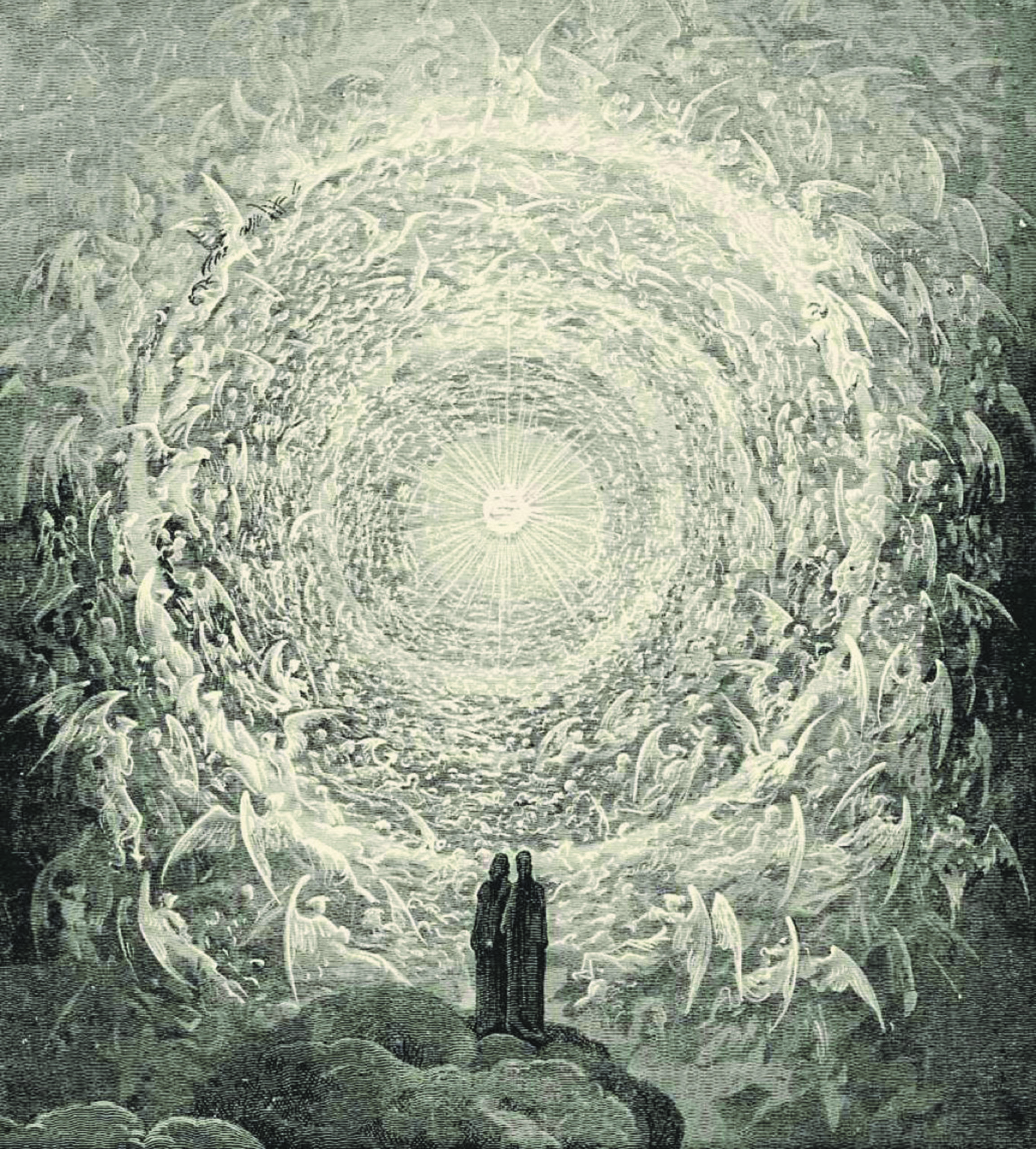
Unfaithful
Dell McNamara stood barefoot in the center of his lawn, absurdly wondering if he would ever mow it again.
Up and down Taylor Street, his neighbors who were still here also stood on their lawns, drawn like Dell by the sound of the trumpet. They were all looking up. Even those who had fallen to their knees mumbling or wailing their prayers did so with eyes cast toward the skies.
Skies that had no room for them, Dell thought. Or me. Not that he had expected to be called.
Helen and the children, yes. She was a good woman, a good wife and mother. A gentle and loving soul who in twenty years of marriage had never given him cause for anger. It was never her fault he’d done what he’d done.
Dell was not surprised when the trumpet sounded and Helen and the kids floated out of their bodies and upward, away from him. The look Helen gave him as she departed and saw he was not joining her told him that she knew. Maybe she’d known all along.
Slowly, Dell turned. Miranda stood in the middle of her front lawn. Mark and the twins were not with her, and Dell knew why. Mark was as good a soul as Helen. In a better world they would have been together. Miranda had said as much, more than once, as she and Dell lay tangled in sweaty sheets in some motel.
Now they were headed for that better world, earthly cares and cheating spouses left behind. Maybe they would find some solace in each other up there, if such things were permitted.
The trumpet call was growing louder.
Dell took a deep breath and walked slowly to Miranda’s side. Neither said a word. They stood beside each other for another long moment, then turned and went inside Miranda’s house. Wordlessly they undressed.
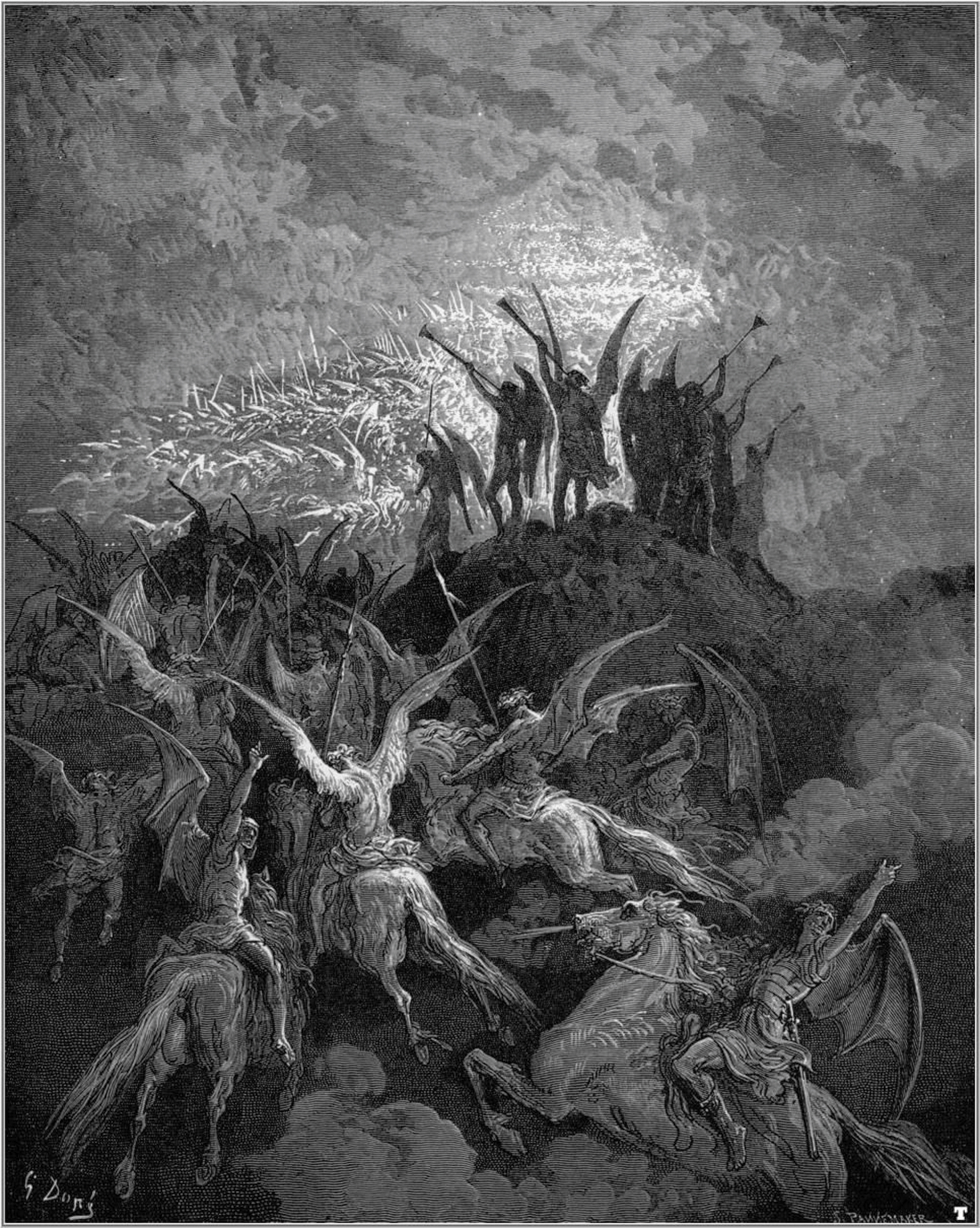
Battle of the Brass
Never in his life did Danny Duncan figure he’d be Called when the End Times came. It wasn’t because he never believed the End Times would come — clearly he was proved wrong about that the instant the first trumpet note blew from above. It was that even if the stories were true, the reward they promised didn’t appeal to Danny.
Up wasn’t a direction much of his life had prepared him for. No, every path he chose led him down. Too much fun, too much sex, too many drinks, too many drugs, too many wrong turns made for all the wrong reasons. He’d known it at the time, he’d known it all the time, and he made every one of those wrong turns deliberately and enthusiastically.
He regretted none of them.
After all, every wrong turn made him a better musician. And that was all that mattered — the music, his music, was made with help from neither God nor the Devil. He was the greatest trumpeter anybody had ever heard. Good as Bix or Satchmo or Wynton, good as any of them and better than all but two or three.
Getting there, becoming who he was — Danny Duncan, trumpeter — took every bit of life he had in him. It left nothing for a wife or children or anyone, especially God. God couldn’t give him what he found when he pressed his horn to his lips. What did Danny care about living forever if that meant living a godly life?
But now that the End Times had been announced by those strange and breathtaking notes coming from the skies, he was more interested than ever in living on his own terms.
Playing it my way, he thought as he took up the trumpet he’d blown in every great jazz club in the world. Whoever was playing up there was good, no doubt about that. Good — but not great.
Danny filled his lungs.
He took a moment to synch up with the tune from above, readying himself to blow one hell of a counterpoint.
Danny Duncan would never be greater, never play better than he played right then, on a corner outside Maude’s Swing Street in the heart of the village, as all around him those who didn’t rise listened not to Gabriel’s trumpet, but Danny’s.
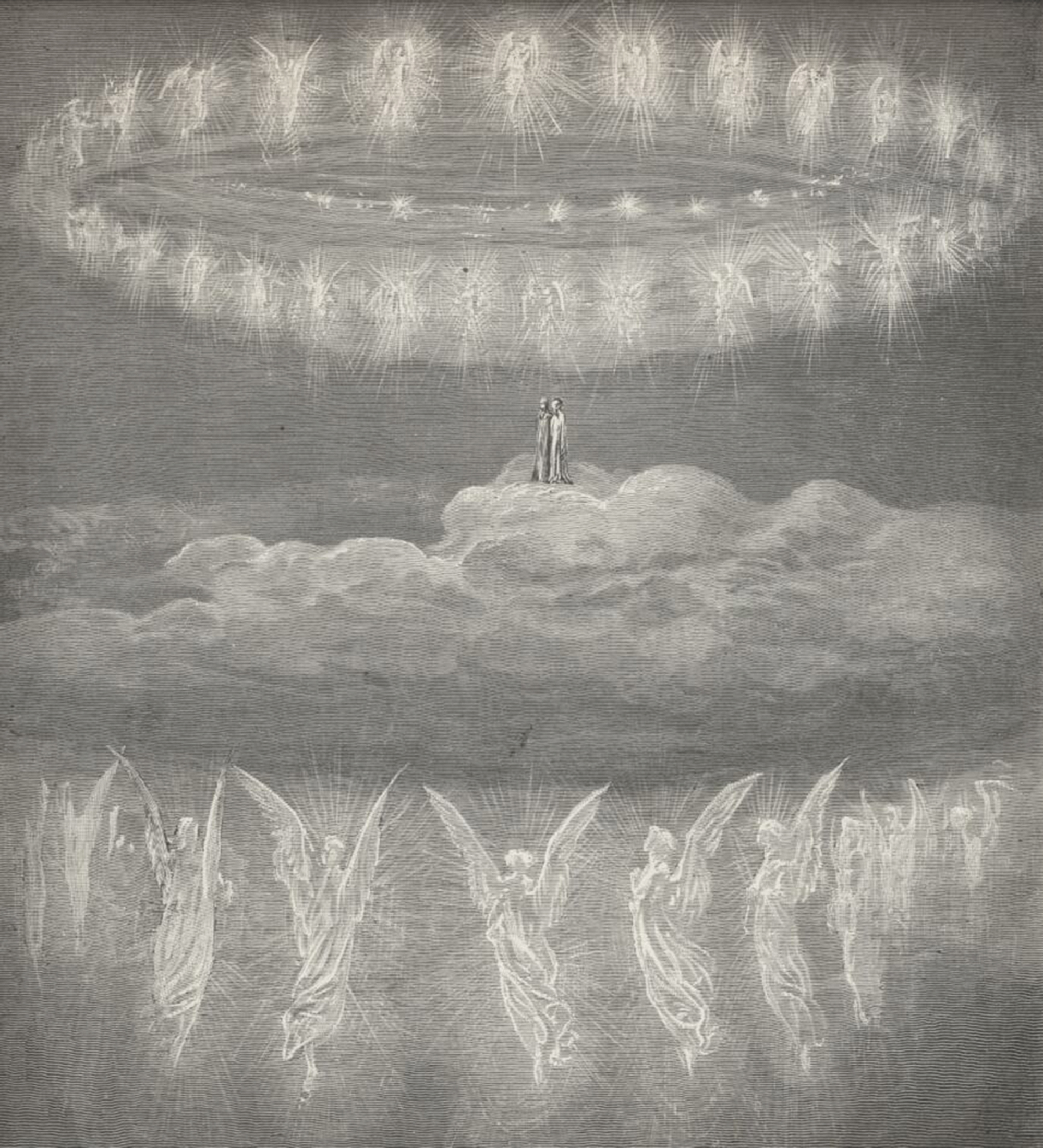
Don’t Look Back
Sister Wife Zara was in the laundry room, washing the sheets Brother Josiah anointed last night with Sister Wives Elizabeth and Katherine. Judging from how hard Zara found herself scrubbing, they were anointed repeatedly.
Zara didn’t mind the work. Other sister wives had scrubbed sheets Zara had lain on with Brother Josiah. The arrangement was equitable, fair as well as ordained by the Word. Any time even a hint of a complaint or question threatened to rise in her thoughts, she turned to the teachings and what they promised.
What they promised was everything.
A heaven just for them, for Brother Josiah and his sister wives and their children, all of them gathered into God’s Glory because they had followed and never questioned, never doubted, never faltered in their belief.
And never looked back, Zara thought as she scrubbed. There was nothing in the past to look back upon. There was no past — only the heavenly future.
The first time Zara realized this came not long after Brother Josiah took her into his bed. So many years ago, and yet that memory, of being taken into the Family of Heaven, remained as fresh as if it were yesterday.
Or last night, Zara thought, permitting herself a small grimace as she thought of her new sister wives and remembered her own first night with Brother Josiah and his insistent ways as Sister Wives Anna and Ruth participated with delight. The morning after, as Zara rose with tears and knelt beside the bed to pray, she could no longer remember her parents’ faces, nor those of her brother and two sisters.
She felt regret at their absence from her memories, but they were sinners and would not be among the chosen called to Heaven when the trumpet sounded. There was nothing Zara could do about that. When she tried to tell them of Brother Josiah’s teachings and what following him required, her parents tried to have her committed. But she escaped and gave herself wholly to Brother Josiah, and never looked back, although she included her family in her prayers.
After rinsing and wringing the sheets, Zara placed them in a large wicker basket and carried them to the long line strung between two poles behind the main house. It was a glorious day for hanging the wash to dry in the warmth of God’s sunshine. She hung one sheet and was beginning to hang the second when a trumpet sounded from above.
Just as she began to rise, Zara looked back for the first time in decades.
There were Brother Josiah and Sister Wives Anna and Ruth, whispering to one another — likely gossiping as they often did — still on the earth, still bound to their earthly forms, still—
There.
Zara felt a surge of anguish, though it paled quickly in the joy that flowed through her like honey. She and Sister Wives Elizabeth and Katherine and the children were rising — just as Brother Josiah and the Word had promised. All of Zara’s sacrifices, all the strictures she imposed upon herself and the children were being rewarded. But —
Sister Wives Anna and Ruth.
And Brother Josiah.
Why were they not called?
What sins had they committed that they should be denied this reward that Josiah taught would be theirs if they only remained faithful? Zara thought again of that violent night in Josiah’s bed, and Sister Wives Anna and Ruth’s complicity, and she knew why.
She watched them as she rose. She saw horror on the women’s faces but anger and rage on Brother Josiah’s. He was speaking, and though Zara could not hear his words, she could see that they were words of blasphemy, the vilest sorts of sacrilege coming from the lips of this man who had preached such stern holiness.
Turning away from Josiah’s impiety, Zara looked to the beautiful skies that were her new destination, and never looked back again.
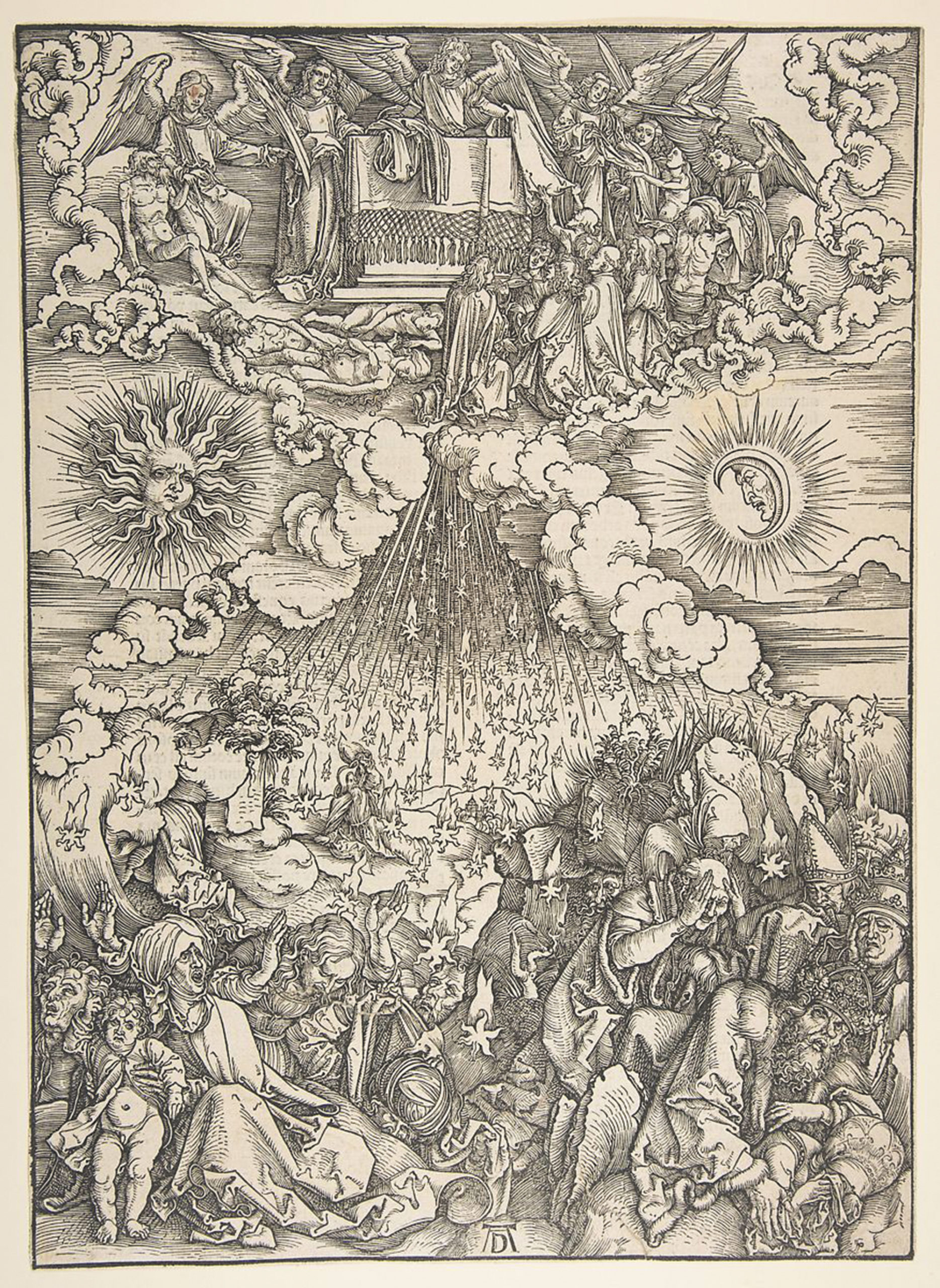
The Apocalypse of Don
When the Horsemen appeared in the sky at the trumpet’s call, the president ordered the launch of “every goddamn surface-to-air missile we’ve got!”
None of the weapons had any effect on the galloping Horsemen.
The president, whose mood and temper were bad in the best of times, grew furious, and made clear that no one — “And you know who I mean!” — was going to put on a better apocalypse than he could.
He summoned the cabinet to the White House and was not in the least surprised when every one of them answered his call, none having received a higher one. Much the same was experienced by the leaders of the House and Senate, the nation’s governors, mayors, state legislators, judges, and public officials at every level. As nearly as anyone could figure, if you’d ever run for office, you didn’t get Heaven’s vote when the time came.
The president cracked the container that held the launch codes, ignoring the pleadings of his cabinet, advisers and the Joint Chiefs. He was in no mood for discussion, advice or counsel. He knew what had to be done, and he was more than ready to do it.
What, after all, did he have to lose?
“What’re you all so afraid of?” he said. “That we’ll go to Hell? I’ve got news for you — it’s already here, or hadn’t any of you noticed?”
He picked up the phone, ready to read the codes and start the countdown.
“Besides,” the president said to those surrounding him, “don’t you think we have the right to remind the world who we are one more time? Let’s show them what Hell really looks like.”
The trumpet sounded again as the president recited the numbers into the receiver.
Man-made fires blossomed across the surface of the earth. Fires that would burn for years, obliterating all who were left behind and every evidence of their lives and days. But those fires would not be extinguished, nor the ashes of the earth grown cold, before the president — whose screams complimented the trumpet’s call — was drawn and quartered by the galloping Horsemen of Judgment.
Joshua Viola is a #1 Denver Post bestselling author, four-time Colorado Book Award finalist, and the owner of Hex Publishers.
